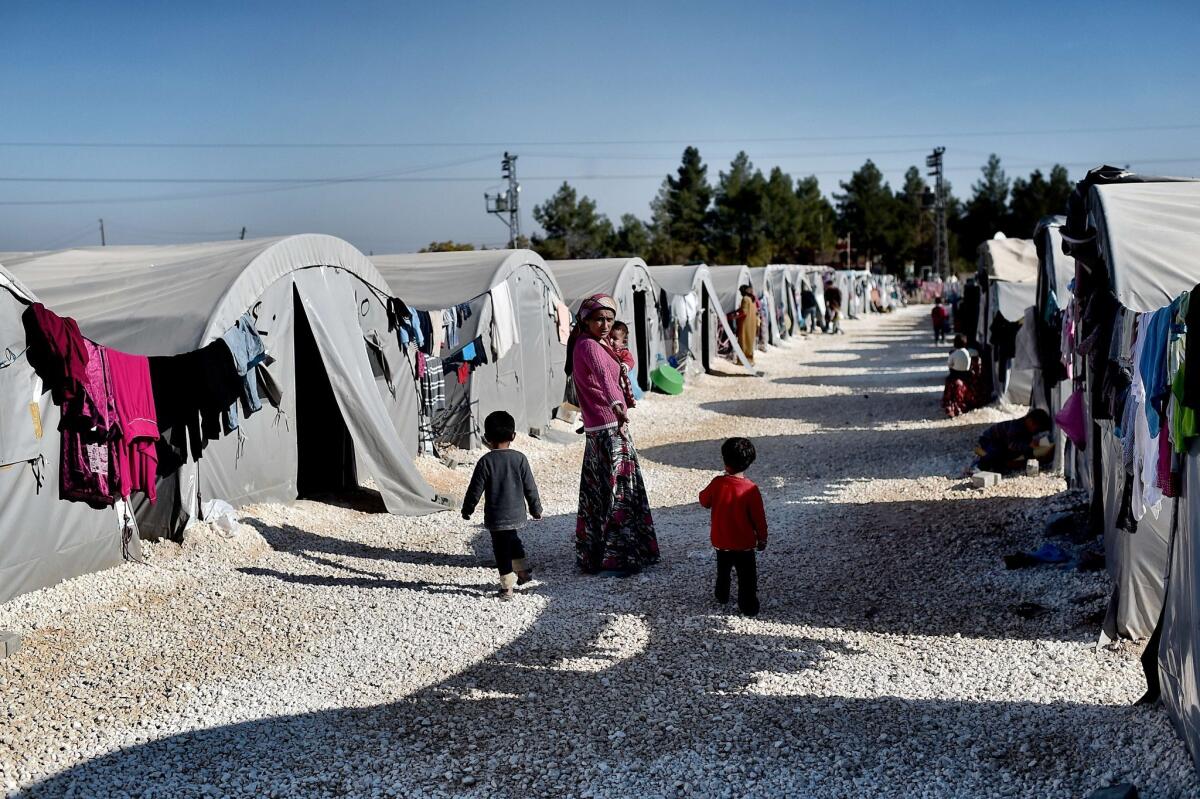Fewer Syrians able to flee as neighboring countries limit entry

The number of Syrians able to flee the violent conflict in their country has dramatically declined this year as neighboring countries increasingly turn back would-be refugees at their borders, according to a humanitarian report released Thursday.
Faced with limited and waning international support and economic strains, the governments have made it more difficult to enter their countries by, among other methods, digging deep trenches along their borders to discourage illegal crossings and limiting the number of refugees allowed to enter at official border posts.
In 2013, an average of more than 150,000 Syrians were streaming out Syria each month, most to the neighboring countries of Jordan, Turkey, Lebanon and Iraq. Last month, the United Nations refugee agency registered fewer than 19,000, according to the report released by the Norwegian Refugee Council and the International Rescue Committee.
The conflict has left at least 200,000 dead.
Agencies running refugee camps and towns hosting uprooted Syrians have long chafed under the burden of the influx as the Syrian war continues unabated. Governments have struggled to keep up with the flow and newly built refugee camps are filled almost as soon as they are constructed.
This has led to a massive growth of camps for the displaced inside Syria, close to its borders, as individuals and families uprooted by the fighting find themselves unable to leave and unwilling to go back home. Large swaths of land, including abandoned agricultural fields, are taken up by communities of tents, some consisting of little more than tarps or old potato sacks.
Apart from housing the refugees, Syria’s neighbors face undue pressure on their economies and public services such as schools and hospitals, the report said.
“Humanitarian organizations have repeatedly warned that the capacity of the host communities have been stretched to the limits and argued for better international burden-sharing,” said Jan Egeland, secretary-general of the Norwegian council. “We are witnessing a total collapse of international solidarity with millions of Syrian civilians.”
The United Nations has registered more than 3 million Syrian refugees, but many more are believed to have left Syria undocumented. Lebanon and Turkey each host more than a million Syrians, with the refugees now accounting for a quarter of Lebanon’s population, a huge burden on a small country.
But nations outside the Middle East have agreed to accept a total of only about 50,000 Syrians, less than 2% of the total refugee population, according to the report.
“Civilians are not getting out and sufficient aid is not getting in,” Egeland said. “It is a collective betrayal against men, women and children inside Syria, who are living in danger and destitution and are in acute need of assistance.”
More to Read
Start your day right
Sign up for Essential California for news, features and recommendations from the L.A. Times and beyond in your inbox six days a week.
You may occasionally receive promotional content from the Los Angeles Times.







